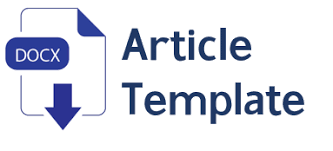Determinasi Kepatuhan Pajak dalam E-commerce; Studi Literatur Sistematik
DOI:
https://doi.org/10.59086/jam.v4i1.667Keywords:
E-Commerce, kepatuhan pajak, regulasi pajak digital, pemahaman perpajakan, transparansi transaksi, tax compliance, digital tax regulations, tax knowledge, transaction transparencyAbstract
E-commerce has grown rapidly and significantly contributed to digital transactions and state revenues. However, the complexity of digital tax regulations and transaction transparency remains a challenge for taxpayer compliance in this sector. This study aims to analyze the factors influencing tax compliance in e-commerce using the Systematic Literature Review (SLR) method. The study identifies three key factorstax knowledge, the complexity of digital tax regulations, and transaction transparencyand analyzes their impact on e-commerce tax compliance. The findings indicate that tax knowledge positively influences tax compliance, but in some cases, it may encourage tax avoidance if taxpayers exploit legal loopholes. The complexity of digital tax regulations tends to negatively impact tax compliance, as it makes it more difficult for taxpayers to understand and fulfill their obligations. Transparency in transactions plays a crucial role in enhancing tax compliance, but its effectiveness depends on the enforcement mechanisms and sanctions applied. These findings provide insights for policymakers to design more comprehensive strategies to improve e-commerce tax compliance through more educational approaches, simplified regulations, and a more transparent and integrated tax system.
Downloads
References
Astuti, A., Pricilia, M. D., & Inasius, F. (2024). Factors influencing tax compliance among e-commerce traders in Indonesia. Macroeconomics and Finance in Emerging Market Economies. https://doi.org/10.1080/17520843.2024.2429909
Andriana, M., Ramadhina, S., & Nuridah, N. (2023). The effect of tax knowledge on ecommerce tax compliance.Journalof Digital Economy, 15(2), 45-60. https://doi.org/10.1080/17520843.2023.2429907
Bellon, M., Dabla-Norris, E., Khalid, S., & Lima, F. (2022a). Digitalization to improve tax compliance: Evidence from VAT e-Invoicing in Peru. Journal of Public Economics, 210, 1-28. https://doi.org/10.1016/j. jpubeco.2022.104661.
Dauda, P., Paris, P. P., Megawaty, & Hendriadi. (2023). Pengaruh Electronic Commerce (E-Commerce) terhadap Peningkatan Pendapatan pada UMKM di Kabupaten Gowa. JEMMA (Journal of Economic, Management, and Accounting), 6(1), 105-115. https://doi.org/10.35914/jemma.v6i1.1789
Fjord, L. B., & Schmidt, P. K. (2023). The digital transformation of tax systems progress, pitfalls, and protection in a Danish context. Indiana Journal of Global Legal Studies, 30(1), 227-272. https://dx.doi.org/10.2979/glgs.2023.a886168
Hanrahan, D. (2021). Digitalization as a determinant of tax revenues in OECD countries: A static and dynamic panel data analysis. Athens Journal of Business & Economics, 7(4), 321-348. https://doi.org/10.30958/ajbe.7-4-2
Hidayat, K. N. S., & Dewayanto, T. (2024). Pengaruh Sosialisasi Perpajakan,Kesadaran Wajib Pajak,Pemahaman Perpajakan,dan Tarif Pajak Terhadap Kepatuhan Wajib Pajak Pelaku Ecommerce(Studi kasus pada Pelaku Usaha UMKM yang Menggunakan Layanan Berbasis Ecommerce di KabupatenJepara). DiponegoroJournalofAccounting,13(2).Retrievedfrom https://ejournal3.undip.ac.id/index.php/accounting/article/view/43909
Indriyani, P. D., & Jayanto, P. Y. (2020). Faktor-Faktor yang Mempengaruhi Kepatuhan WPOP Pelaku E-Commerce di Kota Semarang pada Platform Online Marketplace Blibli.com. Moneter - Jurnal Akuntansi dan Keuangan, 7(1), 113-122. https://doi.org/10.31294/moneter.v7i1.7703.
Jannah, M., & Sitinjak, N. D. (2023). Faktor-faktor yang mempengaruhi tingkat kepatuhan wajib pajak orang pribadi pelaku e-commerce di Kota Labuan Bajo. Jurnal Ilmiah Bisnis Dan Perpajakan (Bijak), 5(2), 113–120. https://doi.org/10.26905/j.bijak.v5i2.10013
Liu, Y. (2024). Analysis of E-commerce Tax Compliance Based on Grey Relational Model. Proceedings of the 3rd International Conference on Bigdata Blockchain and Economy Management (ICBBEM 2024), Wuhan, China, March 29–31, 2024. https://doi.org/10.4108/eai.29-3-2024.2347452.
Lusala, B. A. ., Ogaga, D. B. ., & Tarus, D. J. K. . (2025). Effect of Tax Literacy on Digital Income Tax Compliance among E-Commerce Traders in Nairobi, Kenya. Journal of Finance and Accounting, 5(1), 12–21. https://doi.org/10.70619/vol5iss1pp12-21
Lo, M. F., Karamoy, H., & Gamaliel, H. (2023). Determinants of MSME taxpayer compliance with moderating variables of tax incentive utilization in Manado City. Dinasti International Journal of Management Science, 4(3), 556-568. https://doi.org/10.31933/v4i3.1645
Medioli, A., Azzali, S., & Mazza, T. (2022). High ownership concentration and income shifting in multinational groups. Management Research Review, 46(1), 82-99. https://doi.org/10.1108/mrr-02- 2021-0141
Napisah, N., & Khuluqi, K. (2022). Pengaruh Sosialisasi Perpajakan, Pemahaman Perpajakan, Tarif Pajak, dan Sanksi Pajak Terhadap Kepatuhan Wajib Pajak Pada Pelaku E-Commerce di Shopee. Ekonomi Keuangan Investasi dan Syariah (EKUITAS), 4(2), 689-697. https://doi.org/10.47065/ekuitas.v4i2.2396.
Oktaviana, I., & Umrusah, D. (2023). Determinant factors affecting tax compliance of e-commerce actors on online marketplace platforms. National Conference of Accounting & Finance (NCAF), 6(1), 55- 65. https://journal.uii.ac.id/NCAF/article/view/27282/14634
Patriandari, A., & Safitri, A. (2021). Analisis faktor-faktor yang mempengaruhi kepatuhan wajib pajak orang pribadi pengguna e-commerce. Akrual: Jurnal Akuntansi dan Keuangan, 3(1), 1-15. https://doi.org/10.34005/akrual.v3i1.1529
Sabrina, D., Darmawati, D., & Saputro, W. A. (2023). Karakteristik Wajib Pajak, Kinerja Sistem Perpajakan, dan Kepatuhan Pajak: Studi Empiris terhadap Persepsi Wajib Pajak E-Commerce. Jurnal Ekonomi Trisakti, 3(1), 1583-1590. http://dx.doi.org/10.25105/jet.v3i1.16071
Simanjuntak, F. L. P., & Hartono. (2024). Pengaruh pengetahuan perpajakan, tarif pajak, dan kesadaran wajib pajak terhadap kepatuhan wajib pajak UMKM wilayah Cikarang pada e-commerce di Shopee. Jurnal Pajak Vokasi (JUPASI), 6(1), 1-8. https://doi.org/10.31334/jupasi.v6i1.4348.g2197
Susilowati, A., & Mappanyukki, R. (2023). The impact of digital taxation implementation and taxpayer knowledge on tax revenue obstacles, moderated by incentive policy. Journal The Winners, 24(2), 147-157. https://doi.org/10.21512/tw.v24i2.10958
Yuliani, I. D., Suriyanti, L. H., & Azhari, I. P. (2023). Pengaruh Pengetahuan Wajib Pajak,KesadaranWajib Pajak, Teknologi Informasi terhadap Kepatuhan Wajib Pajak Pengguna ECommerce.Bilancia:JurnalIlmiahAkuntansi,7(3),649656https://ejournal.pelitaindonesia.ac.id/o js32/index.php/BILANCIA/article/view/2546/1293 .
Zaen, B. N. I., Nurhayati, N., & Sari, A. F. K. (2024). Faktor-Faktor yang Mempengaruhi Kepatuhan Wajib Pajak UMKM E-Commerce dengan Preferensi Risiko Sebagai Variabel Moderasi. e-Jurnal IlmiahRisetAkuntansi,13(1),540-550. http://jim.unisma.ac.id/index.php/jra/article/view/24474/pdf
Downloads
Published
How to Cite
Issue
Section
License
Copyright (c) 2025 Nabila Luthfi, Luk Luk Fuadah

This work is licensed under a Creative Commons Attribution 4.0 International License.
This is an open-access journal. All works are published under the Creative Commons license CC-BY which means that all content is freely available at no charge to the user or his/her Institution. Users are allowed to read, download, copy, write, improve, and create derivative creation even for other lawful purposes, this license permits anyone to, as long as they cite and license the derivative creation under similar terms

This work is licensed under a Creative Commons Attribution 4.0 International License.


















